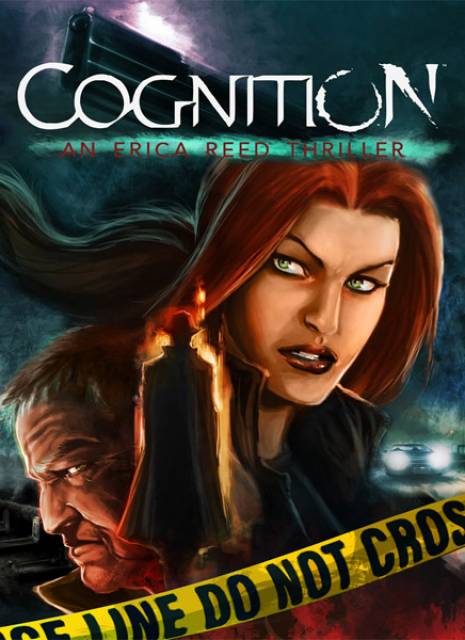Hindsight: A Moonlight Moth Review
A certain friend of mine has always said that he wish he could get into adventure games. He claims that although he is into the stories and writing he cannot get over the hump that is the way in which puzzles are often shoehorned in at the cost of pacing and sometimes logic. His other issue is how adventure games never seem to give you direct control and instead ask you to click the desired destination for your character and watch while they spend the next few minutes getting there, if they haven’t got caught in the geometry.
I have found it sometimes hard to argue these points as most adventure games doggedly stick to the tried and true point and click style, and Cognition certainly doesn’t do too much to push these conventions despite some nice additions. What it does do however is deliver an impressive story that manages to mix the supernatural with the familiar, while keeping things personal and never allowing any pretentious mumbo jumbo to upend the emotional core of the narrative.
As the title suggests you play as Erica Reed, a young FBI agent ostensibly on the trail of her brother’s killer, and over the course of the four episodes investigates a series of brutal murders in an attempt to put together the circumstances surrounding them. What sets Erica apart is that she is also ‘gifted’ with the power to see the past and by doing so can relive certain events in order to discover clues as to what took place.

The story of Cognition is very much played out in the manner of a police procedural; examine the scene, collect evidence, talk to witnesses etc. and gives you a very familiar structure to follow so that at all times you have a sense of what it is that you’re doing. The added advantage of this is that it also gives the story a focus at all times, and keeps your goals tied to interesting plot developments and character motivations.
Erica herself is a fantastic character; sympathetic, flawed, strong in many ways yet very vulnerable in others. She feels human, which for most games seems an impossible task, and great credit must go to her voice actress, Raleigh Holmes, who puts in a wonderfully convincing performance. As the heart of the story she has to carry it, and that the voice acting here is so good just lifts Cognition almost instantly above most of its peers by making it a pleasure to listen to her and experience her struggles.
The quality of the other actors is also good in the main, especially her partner John McCoy and Cordelia Smith, a young lady Erica meets early on at her brother’s grave and for the most part the quality is pretty high. There are occasions when characters let the side down, such as Erica’s superiors, but by in large listening to characters speak is a delight rather than a chore, helped in large measure by the very competent script which never had me cringe once over the 15 hours it took to finish.
Gameplay is standard point and click for the most part; you click on objects, interact with them, and manipulate them to solve puzzles and unlock the next part of the story. What differs here from most games is Erica’s ability to see the past and you can almost at any time bring up a view of what items and people Erica can manipulate in this way. Items can be either studied to see where they have been, linked with the other items to draw out a past event that connects them, or in the case of other characters, they can be touched so as to access their memories and help them remember events and information that can aid the investigation.
As you might imagine this allows the game to side step a few of the traditional investigative methods you might come across and instead creates its own rules for how some information is gained. An especially neat idea is the ‘regression’ mechanic where you use items and clues to flesh out the memories of a character; it puts you in the position of amateur psychologist and is a lot of fun to tease out the story in this rather intrusive yet compelling way. These sorts of ideas create a little more variety to the puzzles and mysteries you encounter and add a little extra to what can be a very repetitive genre mechanically.
Another special mention has to be made about the music which captures the mood and feel of the game very well. Lots of sombre piano and sorrowful tones are present and both the opening and closing themes add rather than detract from the experience.

That’s not to say it’s perfect. Cognition is very much undermined by its budget. While the look of the game is fine if rather unspectacular, the number of technical issues present was a dampener on my enjoyment. The character animations in particular are rather basic and rough, so while you may be enjoying what you hear in a scene, seeing the characters gesture in odd ways isn’t conducive to making you believe in what’s happening. It is also clear that the developers noticed this, as many scenes are played out in still images like from a comic book; easily the best part of the game from a visual perspective.
There are also some other obvious technical problems; when navigating Erica she would often freak out on objects in the environment or pass through them, sometimes she would just vanish entirely, and while these problems don’t ruin the game by any means, it is very distracting and breaks some of the immersion which the story tries so hard to create.
The game also suffers from a few pacing issues. While the story moves at a fine clip, the mechanics to move around are very sluggish and the time it takes to carry out basic movements and actions can be excruciatingly long at times. One interrogation scene had me getting in and out of a chair a number of times to go back and forth between rooms and took so long it felt like the Arctic Circle would melt before I was done. It’s a problem a lot of adventure games have, but here it really comes across and requires a good level of patience to not be frustrated by it.
I rather doubt Cognition will ever be a heralded as a classic, but I was pushed at times to think of it in such a way. I found the story well written, its characters compelling and its puzzles intriguing. The game may not have the most money or the most talented developers behind it, but as an example of what the adventure genre does best, Cognition is an impressive accomplishment.
